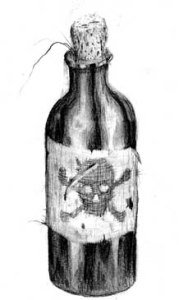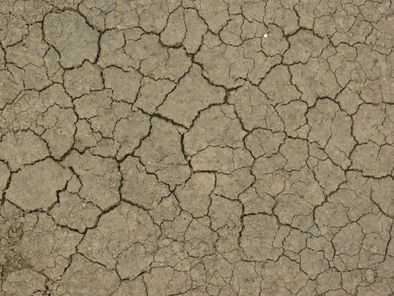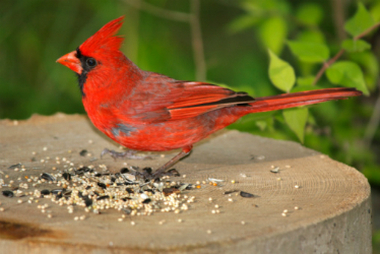 A new report from the American Society of Clinical Oncology says that by the year 2030, cancer will surpass heart disease as the leading cause of death in the United States. That means for the first time in more than 80 years, a disease besides heart disease will kill more Americans than anything else. Why do you suppose that is? Well, let’s look at what causes these diseases. Heart problems are heavily influenced by genetics and diet. Cancer is a result of genetics and carcinogens– environmental substances that disrupt or damage cellular metabolic processes. It’s also no coincidence that as chemicals become more and more present in our lives (cosmetics, plastics, detergents, food preservatives and ingredients, fertilizers,pesticides, smog, smoke, etc.), cancer diagnoses are rising exponentially. These chemical-based products that are found all over our homes are exposing us to more carcinogens than humans have ever been exposed to before. That means it’s more important than ever to reduce the number of chemicals we come in contact with. Obviously, it’s going to be hard to completely eradicate chemicals from our lives completely, but there are a few really simple ways we can reduce the chemicals we come in contact with. First, eat more organic foods. Stop exposing yourself and your family to chemical pesticides and fertilizers, and eat fruits and vegetables that are grown “the old fashioned way,” without chemical assistance. Meat and dairy should also be organic.Here’s a list of the “dirty dozen”— 12 fruits and vegetables that should ALWAYS be purchased organic. Or better yet, grow them in your garden. When you grow your own fruits and vegetables– and do it without chemical fertilizers and pesticides— you’ll always know your stuff is organic and healthy. And largely carcinogen-free. Second, eat more “real food.” Instead of fruit-flavored toaster pastries for breakfast, eat real berries. Instead of chicken nuggets, cook a whole chicken breast. Instead of microwave french fries, eat an actual baked potato. Stop mixing so many flavors into your kids’ drinks. Drink more water and less pop. Instead of potato chips, eat carrot sticks or celery sticks. Anything that’s processed has chemicals added. Those chemicals add up to long-term problems– remember the increasing cancer diagnoses mentioned earlier? The increased carcinogens in our environment are coming from these types of chemicals in our food. Growing a garden will lead to more “real food” consumption for you and your family. Growing a garden with organic fertilizers and compost will yield foods grown the way nature intended, not the way a chemist intended. Finally, stop dumping chemicals on your lawn every year. Do you really want your kids rolling around on a blanket of grass that’s been treated with toxic chemicals? A turf that’s being kept alive by oil-based fertilizers? Instead, treat your lawn with microbial drenches and organic fertilizers. Plants thrived for millennia without chemicals; your lawn can thrive without chemicals too. But more importantly, your health– and the health of your loved ones– will thrive with less chemicals as well. If you live in west Michigan, and you’re interested in having a chemical-free yard this year, read more about the services Good Sweet Earth offers, and then get in touch with us at 616-594-0693, or email us at Office@GoodSweetEarth.com
0 Comments
 The Federal Crop Insurance Program (FCIP) paid out an astonishing and record-breaking $17.3 billion in claims due crops lost to extreme weather last year. And the National Resources Defense Council (NRDC) says much of that could have been prevented with better soil maintenance. Too many farmers use shortcuts and bad practices when it comes to their soil. They rely on chemical fertilizers, and ignore things like cover crops and mulch and natural fertilizers to add nutrients to the ground growing their precious crops. This means their soil is rapidly depleted of organisms that help soil maintain an optimal structure. Farmers also till their fields to remove last year’s crop stubble completely, which then removes nature’s moisture retention system. And when the soil can’t retain moisture, or doesn’t have bacteria and earthworms and other critters maintaining a healthy environment, it becomes more susceptible to harsh weather conditions (like drought, heat and wind). Obviously, farmers can’t control the weather, but they can control how they treat their soil. The NRDC recently issued a report called “Soil Matters: How the Federal Crop Insurance Program should be reformed,” calling for farmers to practice better soil maintenance in order to reduce the need for federal dollars to cover their weather-related losses. One suggestion is to offer reduced premiums to farmers who adopt a number of practices that will lead to healthier and stronger soil. Three such practices would be:
First and foremost, stop using chemical fertilizers and pesticides like Scotts and Miracle Gro. This is the first and most critical step to healthy soil. Instead, use organic methods of fertilizing and amending your soil, like Worm Compost. Next, cover your gardens in the winter. Protect that soil from the harsh cold and ice. You can do this by planting cover crops (like winter rye) and mixing it into the soil next spring as a mulch, or even just laying straw (not hay) over your garden soil. Finally, don’t plant the same thing in the same place year after year. Rotate your crops from one part of your garden to another. Every type of crop needs a slightly different set of nutrients to thrive, and if you plant one thing in the same place every year, the crop will drain the soil of those specific nutrients. Doing this will mean you won’t need to use large amounts of synthetic fertilizer. Compost will usually be enough. To read more about the NRDC’s report, and find out which states required the most federal dollars to cover crop losses click here.  At Good Sweet Earth, we urge our customers to avoid Scotts products (Miracle Gro, Turf Builder, pesticides and herbicides) for their gardens and lawns at all costs. These products are made from synthetic chemicals that absolutely, positively kill your soil. Using the term “fertilizer” to describe Miracle Gro is terribly ironic because these products actually sterilize your soil when applied. Oh sure, Scotts claims these products aren’t dangerous, and that fruits and vegetables grown with their products are completely safe for human consumption. But did you know that Scotts recently sold birdseed that was actually poisonous to birds? If anything is supposed to be bird-friendly, shouldn’t it be birdseed? But here was Scotts, selling birdseed that contained a pesticide that was toxic to birds– and the company actually lied about the safety of this product to the EPA! You can read all about Scotts’ criminal behavior in this brief released by the U.S. Department of Justice last fall, but here’s an especially damning couple of paragraphs: In the plea agreement, Scotts admitted that it applied the pesticides Actellic 5E and Storcide II to its bird food products even though EPA had prohibited this use. Scotts had done so to protect its bird foods from insect infestation during storage. Scotts admitted that it used these pesticides contrary to EPA directives and in spite of the warning label appearing on all Storicide II containers stating, “ Storcide II is extremely toxic to fish and toxic to birds and other wildlife.” Scotts sold this illegally treated bird food for two years after it began marketing its bird food line and for six months after employees specifically warned Scotts management of the dangers of these pesticides. By the time it voluntarily recalled these products in March 2008, Scotts had sold more than 70 million units of bird food illegally treated with pesticide that is toxic to birds. Scotts also pleaded guilty to submitting false documents to EPA and to state regulatory agencies in an effort to deceive them into believing that numerous pesticides were registered with EPA when in fact they were not. The company also pleaded guilty to having illegally sold the unregistered pesticides and to marketing pesticides bearing labels containing false and misleading claims not approved by EPA. This wasn’t a mistake or an oversight on the part of Scotts. This was willful and criminal behavior, all in the name of turning a larger profit. The only thing they cared about was selling their product, even if it meant killing birds in the process. If they lied to consumers and the Environmental Protection Agency about the safety of their birdseed, why should we believe them when they say their fertilizers, pesticides and herbicides are safe? When it comes to feeding your family and friends safe foods, do you really want to take that risk? Scotts had to pay about $12.5 million in criminal and civil fines, as well as perform community service, as a result of their despicable behavior. However, it’s estimated that Scotts sold 73 million bags of this tainted birdseed over the course of three years. My guess is that they made a heckofa lot more than $12.5 million off of these bags of poisonous seed , so there’s a good chance that Scotts will merely see these types of fines as a cost of doing business, and continue doing business as usual. We’re sticking with Worm Compost in our garden. |
